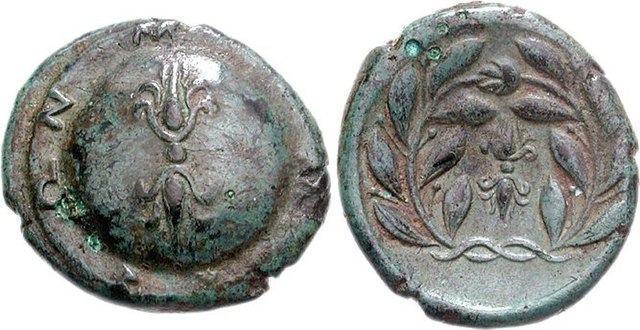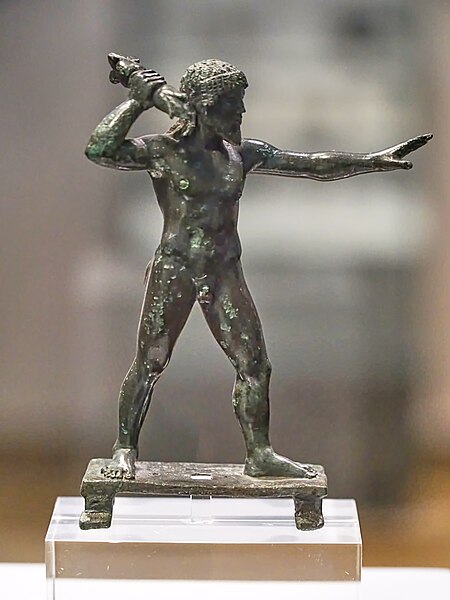Olympias was a Greek princess of the Molossians, the eldest daughter of king Neoptolemus I of Epirus, the sister of Alexander I of Epirus, the fourth wife of Philip II, the king of Macedonia and the mother of Alexander the Great. She was extremely influential in Alexander's life and was recognized as de facto leader of Macedon during Alexander's conquests. According to the 1st century AD biographer, Plutarch, she was a devout member of the orgiastic snake-worshiping cult of Dionysus, and he suggests that she slept with snakes in her bed.
Roman medallion with Olympias, Museum of Thessaloniki
Olympias presenting the young Alexander the Great to Aristotle by Gerard Hoet, 1733.
Statue of Alexander and Olympias at Schönbrunn Palace
Cassander ordering the death of Olympias by Jean-Joseph Taillasson, ca. 1799.
The Molossians were a group of ancient Greek tribes which inhabited the region of Epirus in classical antiquity. Together with the Chaonians and the Thesprotians, they formed the main tribal groupings of the northwestern Greek group. On their northern frontier, they neighbored the Chaonians and on their southern frontier neighbored the kingdom of the Thesprotians. They formed their own state around 370 BC and were part of the League of Epirus. The most famous Molossian ruler was Pyrrhus of Epirus, considered one of the greatest generals of antiquity. The Molossians sided against Rome in the Third Macedonian War and were defeated. Following the war, the region witnessed devastation while a considerable number of Molossians and other Epirotes were enslaved and transported to the Roman Republic, overwhelmingly in the Italian Peninsula itself.
Coin of Molossi, 360–330/25 BC. Obverse: Vertical thunderbolt on shield, ΜΟΛΟΣΣΩΝ (of Molossians) around shield. Reverse: Thunderbolt within wreath.
Bronze figurine of Zeus Keraunios bearing a thunderbold from the oracle of Dodona. National Archeological Museum, Athens.






